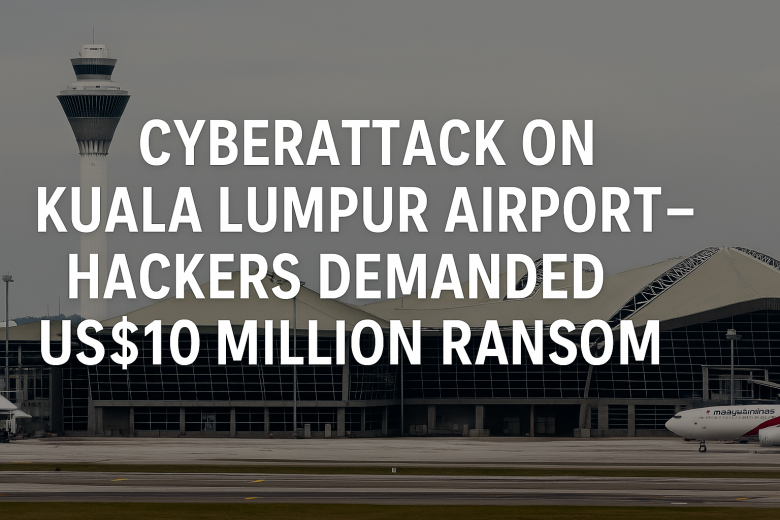When a critical transportation hub like Kuala Lumpur International Airport becomes the victim of a ransomware attack, the world takes notice.
In March 2025, reports confirmed that hackers infiltrated systems connected to the airport’s key facilities, demanding a staggering US$10 million ransom. This high-profile breach forced the government to shut down several core services and triggered an international conversation about airport cybersecurity.
But what does this incident mean for the rest of us—and how can we prepare for such cyber threats?
What Happened?
The cyberattack crippled the airport’s contractors, halting communications and critical logistics services. Hackers reportedly deployed advanced malware to disable infrastructure and demanded a hefty payment for restoration. Investigations are ongoing, but experts suspect it was a ransomware-as-a-service (RaaS) group behind the breach—demonstrating how easily these attacks can be outsourced and deployed globally.
Why Airports Are Prime Targets
Airports handle a complex mix of passenger data, operational systems, flight logistics, and vendor communications—all ripe for exploitation. A well-timed breach can cause chaos, economic loss, and public distrust. This incident underlines the urgency for cybersecurity professionals trained in ethical hacking and incident response.
If you’re considering entering the cybersecurity field, real-world incidents like this demonstrate both the demand and urgency for skilled defenders.
What Can We Learn from This?
1. Ethical Hacking Skills Are Vital
A Certified Ethical Hacker (CEH) can think like a cybercriminal to find and fix vulnerabilities before attackers do. You can begin your journey with our CEH Training Programme, part of our broader Beginner Cyber Security Package.
2. Network Defence is the First Line
Learning to harden and protect networks is essential. Our Certified Network Defender course is ideal for those looking to specialise in this area.
3. Incident Response Should Be Proactive
The faster an organisation responds, the less damage is done. You’ll find this emphasis in our CompTIA CySA+ certification, which focuses on analysis and proactive defence.
4. Cloud and System Security Are Now Non-Negotiable
With so many operations in the cloud, our Certified Cloud Security Engineer course equips professionals to protect hybrid infrastructures like those seen in modern airports.
Why It Matters for You
If you’re looking to transition into tech, this story shows how vital your future role could be. Robust IT has spent 15 years training cyber professionals who now protect businesses, governments, and critical infrastructure globally.
Whether you’re ex-military and eligible for ELCAS funding, or just getting started, our career pathways can help you become an expert in protecting against cybercrime.
The Bigger Picture
No sector is immune. From airports to hospitals, cyberattacks are becoming more frequent and sophisticated. As a society, our only defence is upskilling a new wave of cyber defenders who understand the tools, threats, and tactics being used today.
At Robust IT, we offer training that leads to real careers in roles like:
Final Thought
The Kuala Lumpur Airport breach is a chilling reminder: we’re only as strong as our weakest digital link. Training today could mean protecting global infrastructure tomorrow.
Are you ready to start your career in cybersecurity? Explore our Cyber Security Training Pathways or Contact Us for more advice on getting started.
